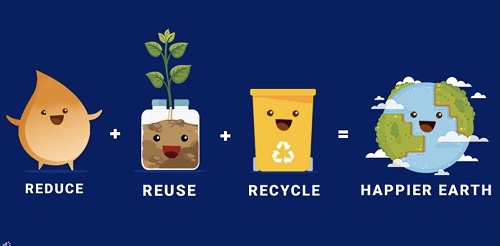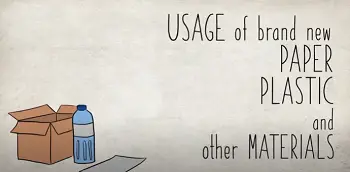You’re a boater. You know you have a responsibility to the water and wildlife, but what about the environment? The three Rs are an easy-to-remember acronym for reducing pollution at its source: reduce, reuse, recycle. These simple steps can help keep our waterways clean and healthy, so let’s make it happen.

Boaters have a responsibility to the environment what is one of the 3rs
Reduce, Reuse, Recycle
Boaters can contribute to the problem of marine debris by improperly disposing of their waste. They may throw cigarette butts, food wrappers, and other garbage overboard without a second thought about the consequences for fish and marine animals who mistake litter for food or eat it directly because of its resemblance to a natural item.
Boaters also dispose of oil, hydraulic fluid, antifreeze, and other pollutants that sink to the seafloor or wash up onshore. They can help keep our oceans clean by following the Three Rs: Reduce, Reuse and Recycle.
Boaters also need to take care of their vessels to prevent them from leaking oil, fuel, or other substances into the water. They can help by checking their boat and engine regularly for leaks. They should also clean any spilled fuel before the next boating season.
Boaters should follow the below things to save the environment
1. Carry reusable items like bottles, silverware, cups, cloth bags, and canvas totes.
2. Boaters can also avoid disposable items such as plastic or Styrofoam cups and plates by using reusable containers instead.
3. They should use cloth bags when they shop to avoid using the plastic grocery bags that are thrown away after a single use (some states have banned them).
4. They can also carry their own reusable beverage container when they buy their favorite bottled drinks. Water, juice, and soft drink bottles can be washed out and reused again and again.
5. Boaters can also make sure to recycle all of their used plastic containers by dropping them into recycling bins.
6. Recycle old batteries, motor oil, and car batteries. They can find recycling locations for some types of batteries on the Boating Responsibly website.
7. Boaters can take advantage of many marinas that offer free disposal of boat oil and antifreeze when it is drained from a boat’s engines. They should check with their local marinas. They should never dump oil directly into the water.
8. Fisherman can help keep marine habitats healthy by checking their fishing lines and hooks each time they go out on the water to make sure they are clean before going fishing again. They should educate themselves prior to their trip.
They must obey all speed limits and keep a safe distance from wildlife. They should report any pollution they see on the water. Boaters/Fishermen can avoid operating in shallow water or near shorelines, reefs, or other sensitive areas.
Which is better reduce, reuse or Recycle?
Reusing is better than recycling because when you reuse something, you are not creating any waste that has to be recycled and it also eliminates the energy that is used in recycling. It also significantly reduces waste that is thrown away. You should reuse your water bottles, coffee cups, and utensils.
If waste/Garbage cannot be reduced or reused then you should consider recycling. Recycling can be a good option for Boaters because it reduces pollution by extracting and processing raw materials into new products.
As a boater, you should avoid sensitive areas. You need to know where important fish habitats are, like spawning areas for game fish or nursery grounds for young fish. You should use your charts and navigation equipment to be sure that you are not going anywhere near these areas. You can help protect these habitats by avoiding them altogether.
You can also help reduce the amount of plastic that ends up in our oceans and waterways by reducing, reusing, and recycling. You should not dispose of food or beverage containers made from plastic materials like soda bottles, milk jugs, water bottles, or take-out containers. These should be recycled instead. You can recycle most types of plastics by dropping them off at local recycling centers. Never ever throw these items into the trash or dump them into rivers, streams, or the ocean.
You can lessen their impact by using the Three Rs. Boaters who practice the Three Rs will find that they need to spend less money on boat parts and equipment over time, as well as having a smaller “carbon footprint”.
Conclusion
It’s our responsibility to the environment to practice the 3Rs. We should reduce, reuse and recycle as much as we can in order to cut down on waste that winds up polluting our world. Boaters have a big responsibility when it comes to keeping things clean because any messes created by boating activities will be left behind while traveling downstream or out into larger bodies of water like lakes and oceans. Have you made an effort this summer to do your part for environmental conservation? One easy way is carrying reusable items with you wherever you go so there’s less waste created overall. What are some other ways that boated responsibly this season?
